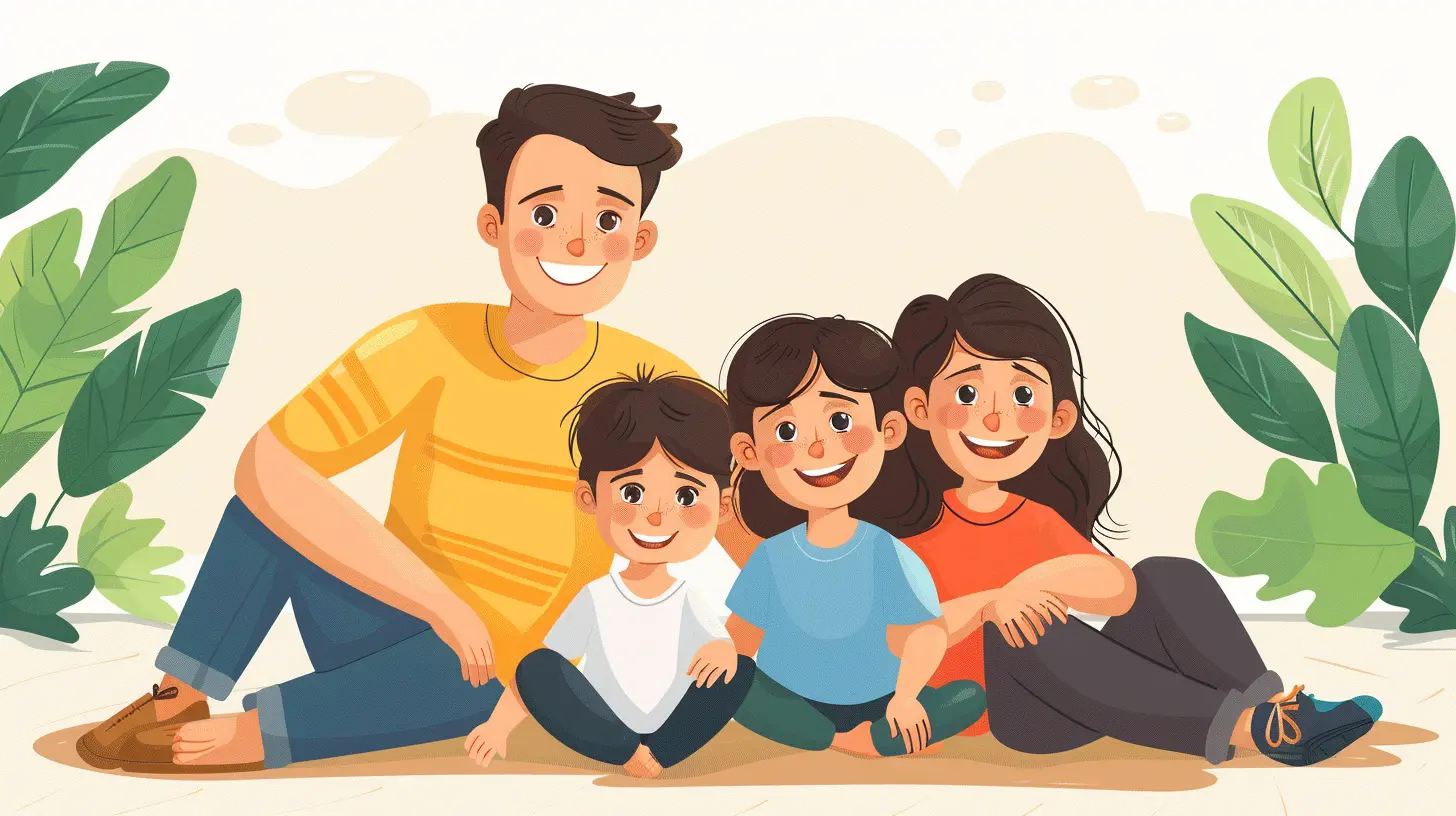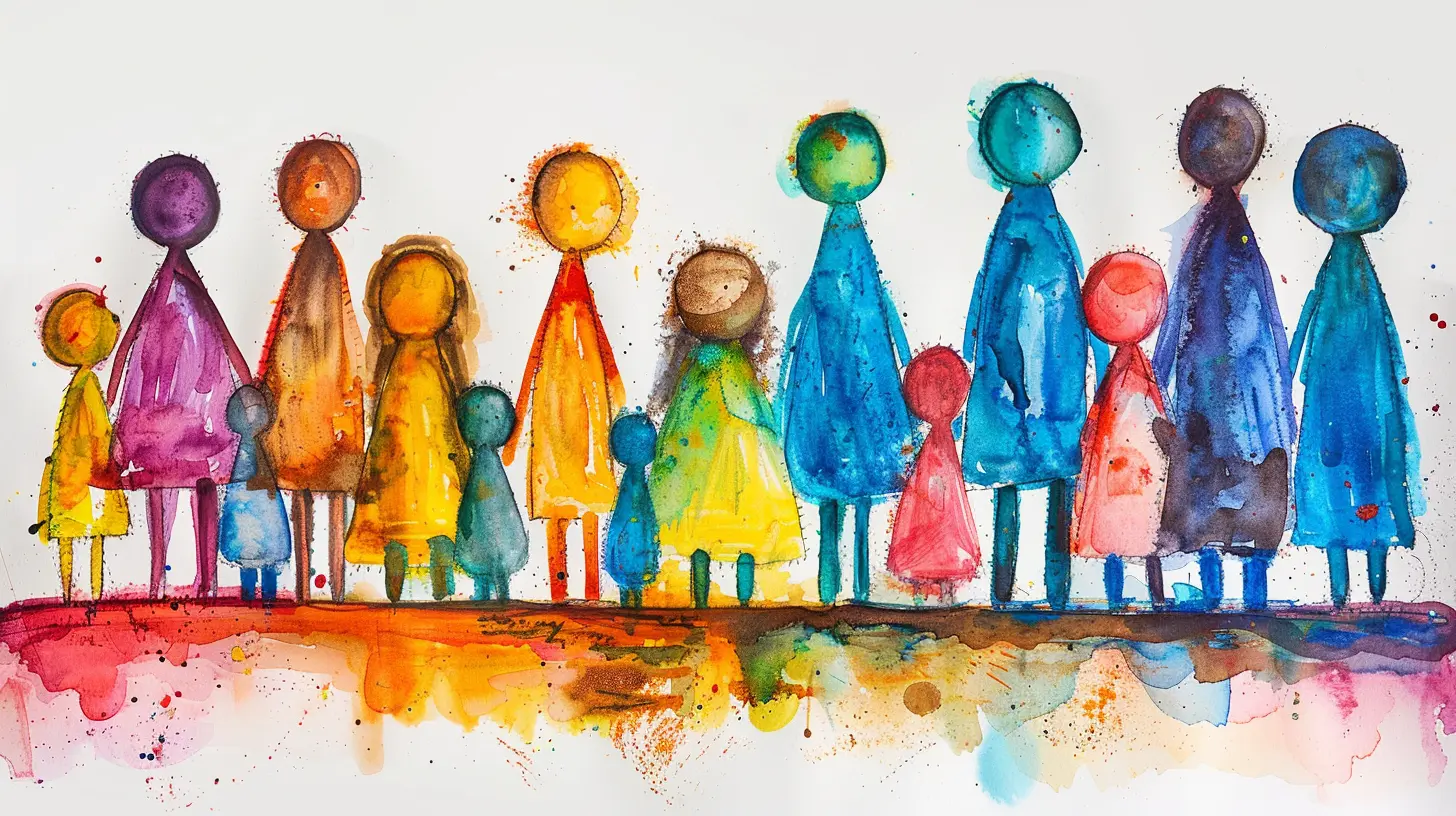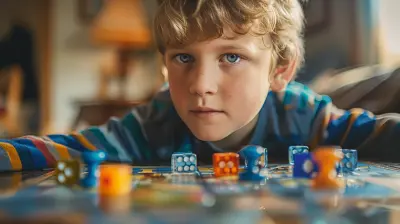The Benefits of Family Counseling for Blended Families
9 June 2025
Blended families, also known as stepfamilies, are becoming more common, but that doesn’t mean they’re without challenges. Bringing together children, step-siblings, and new parental roles can be a rollercoaster of emotions. While love is the foundation of any family, sometimes love alone isn’t enough to navigate the complexities of a blended home. That’s where family counseling comes into play.
So, why should blended families consider counseling? Let’s dive into the many benefits and see how it can bring stability, understanding, and a deeper connection to your family. 
Understanding the Challenges of Blended Families
Before we get into the benefits of counseling, it's important to acknowledge the struggles that blended families often face. Every family is different, but some common challenges include:- Adjusting to new family dynamics – Children may struggle to accept a new parental figure or bond with new siblings.
- Loyalty conflicts – Kids can feel torn between their biological parent and stepparent.
- Differences in parenting styles – Parents may have different rules and expectations, creating confusion or tension.
- Unresolved past issues – Emotional baggage from previous relationships can seep into the new family dynamic.
- Communication difficulties – Misunderstandings and unspoken feelings can build walls between family members.
These issues don’t mean your family is doomed. They simply highlight the need for guidance—and that’s where family counseling can work wonders. 
Why Family Counseling is a Game Changer for Blended Families
Family counseling isn't just for families in crisis; it's a proactive way to build a strong foundation. A trained therapist can help your family navigate emotional roadblocks and create a more harmonious home. Let’s break down how counseling can make a real difference.1. Strengthens Communication
One of the biggest roadblocks in any relationship—especially in blended families—is communication. Without open and honest conversations, misunderstandings can spiral into resentment.Counseling provides a safe space for every family member to share their thoughts and feelings without fear of judgment. A therapist can teach effective communication techniques, ensuring that each person's voice is heard and respected.
Ever had a conversation turn into an argument because someone misunderstood your intentions? Counseling helps prevent those moments by fostering active listening and clear expression.
2. Helps Define Roles and Boundaries
Blended families often struggle with role confusion. Who disciplines the kids? How do step-siblings interact? What’s the involvement of the non-custodial parent?A counselor can help set healthy boundaries, ensuring that everyone knows their role within the family. They work with parents and children to establish mutual expectations, preventing conflicts before they even arise.
Think of it as creating a roadmap—when everyone knows their path, there are fewer chances of getting lost.
3. Reduces Loyalty Conflicts for Children
Children in blended families sometimes feel like loving a stepparent is a betrayal of their biological parent. This internal struggle can lead to guilt, resentment, and emotional withdrawal.Counseling can help children process these emotions, reassuring them that love isn't a limited resource. A therapist helps kids understand that accepting their new family doesn’t mean they are replacing their other parent—it just means their world is expanding.
4. Offers Support for Parents
Let’s be honest—parenting in a blended family can feel like navigating a minefield. You’re constantly balancing the needs of your biological children, stepchildren, and partner, all while trying to maintain your sanity.Counseling provides parents with the tools to:
- Develop a united parenting approach
- Manage conflicts in a healthy way
- Prioritize self-care without guilt
- Handle external challenges (like co-parenting with an ex-spouse)
When parents are on the same page, the entire family reaps the benefits.
5. Helps Step-Siblings Bond
Bringing step-siblings under the same roof can feel like mixing oil and water at first. They don’t share the same history, and they may not be thrilled about suddenly being "siblings."Through counseling, kids can learn how to build relationships with their new family members. With activities, role-playing, and guided discussions, they can break down barriers and create genuine connections.
Are they going to be best friends overnight? Probably not. But with time and guidance, they can develop bonds built on respect and mutual understanding.
6. Resolves Unresolved Emotions from the Past
Blended families often carry emotional baggage from previous relationships, divorces, or losses. If these emotions aren’t dealt with properly, they can affect the new family dynamic.Therapy helps family members process grief, anger, or unresolved pain, preventing past wounds from interfering with present happiness. A fresh start is only possible when the past is acknowledged and healed.
7. Teaches Conflict Resolution Skills
Let’s face it—conflicts are inevitable in any family. But in a blended family, minor disagreements can escalate quickly when emotions are already running high.Family counseling teaches conflict resolution techniques that encourage understanding rather than arguments. Instead of yelling or shutting down, family members learn how to address disagreements in a calm and productive way.
Imagine replacing heated shouting matches with respectful discussions—sounds like a dream, right? With counseling, it can become a reality.
8. Builds a Stronger Family Bond
At the end of the day, the goal of family counseling is to strengthen bonds. It’s about creating a home where everyone feels valued, respected, and understood.By working through challenges together, families grow stronger. Trust deepens, relationships improve, and the family transforms into a true team. 
How to Get Started with Family Counseling
So, if you’re convinced that counseling could benefit your blended family, what’s the next step?1. Find a qualified family therapist – Look for someone with experience in working with blended families.
2. Be open to the process – Counseling isn’t an instant fix, but consistency and effort will pay off.
3. Make it a family commitment – Everyone should be involved, not just parents.
4. Apply what you learn – Therapy provides tools, but it’s up to you to use them in your daily life. 
Final Thoughts
Blending families is a journey filled with bumps, but it doesn’t have to be a battle. Family counseling provides the guidance needed to navigate this journey with understanding, patience, and love.If your blended family is facing struggles, don’t wait until things get unbearable. Seeking help early can make all the difference in building a happy and peaceful home.
After all, family isn’t just about blood—it’s about the love, trust, and connections you build together.
all images in this post were generated using AI tools
Category:
Blended FamiliesAuthor:

Karen Hurst
Discussion
rate this article
3 comments
Amanda Whitley
Family counseling fosters open communication and understanding in blended families, helping to create stronger bonds and resolve conflicts effectively.
June 23, 2025 at 4:35 AM

Karen Hurst
Absolutely! Family counseling plays a crucial role in promoting healthy communication and understanding, which are essential for building strong bonds and resolving conflicts in blended families.
Maddox McCallum
Great insights for happy families!
June 13, 2025 at 3:48 AM

Karen Hurst
Thank you! I'm glad you found the insights valuable for promoting happiness in blended families.
Odessa Morales
What a thoughtful article! Family counseling can truly be a game-changer for blended families, fostering understanding and connection. It's wonderful to see such valuable insights shared for navigating these unique dynamics. Thank you!
June 11, 2025 at 4:06 AM

Karen Hurst
Thank you for your kind words! I'm glad you found the article insightful—family counseling can indeed make a significant difference for blended families.



